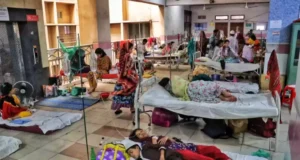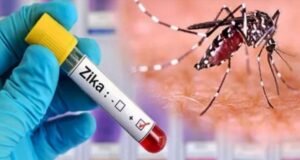
About one in six adults globally have experienced infertility at least once in their life, the World Health Organization (WHO) said in a report on Monday, urging countries to actively collect more consistent data on the disease.
The report analyzed existing studies conducted from 1990 to 2021 and showed that about 17.5% of adults across the world were affected by the inability to have a child. WHO officials said the report takes into account several research approaches.
“The sheer proportion of people affected show the need to widen access to fertility care and ensure this issue is no longer sidelined in health research and policy,” said the UN health agency’s chief, Tedros Adhanom Ghebreyesus, REuters reports.
The WHO defines infertility as a disease of the male or female reproductive system that is defined by the failure to achieve a pregnancy after 12 months or more of regular unprotected sexual intercourse.
There was no evidence of increasing rates of infertility between 1990 and 2021, the global health agency’s unit head for Contraception and Fertility Care, James Kiarie, told journalists on a call.
“Based on the data we have, we cannot say that infertility is increasing or constant
the jury’s still out on that question,” he said, citing that data so far has been mixed and inconsistent.
The report highlights the need for countries to collect and share consistent data on infertility, separated by age and cause, as well as information on those who need fertility care.
About 17.8% of adults in high-income countries have experienced infertility at least once and about 16.5% of adults in low- and middle-income countries, according to the report.
 Weekly Bangla Mirror | Bangla Mirror, Bangladeshi news in UK, bangla mirror news
Weekly Bangla Mirror | Bangla Mirror, Bangladeshi news in UK, bangla mirror news







